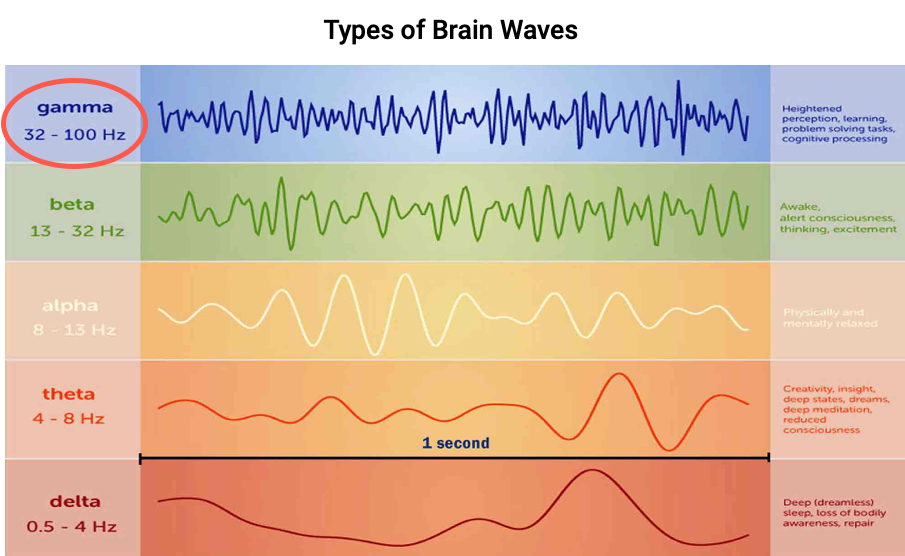Published in PLoS ONE, initial findings of Phase 1 and 2 human trials indicated statistically significant neurological and cognitive improvements in patients with early-stage Alzheimer's disease (AD). The therapy has also proven to be safe.
- The therapy is called GENUS, which is short for Gamma ENtrainment Using Sensory stimulation. GENUS uses 40 hertz (Hz) light and sound (40 beats per second) to provide sensory stimulation to the brain. Gamma is a type of brain wave.
- Speaking about the Phase 2 results, the MIT researchers said,
"We found that, relative to the control group, the active group that had daily usage of 40Hz GENUS over three months had less brain atrophy and reduced loss of functional connectivity, improved markers of sleep, and improved performance on an associative memory task,"
Why it matters
GENUS uses inexpensive technology and can be used at home. These attributes make it ideal for rapid adoption by millions of Americans living with AD.

How it works
- While subjects watch videos on an iPad, the LED light panel on the whiteboard flickers at 40 Hz, and the soundbar plays a 40-Hz tone.
- The MIT researchers showed that GENUS light-and-sound combination caused synchronized gamma-wave activity in the brain. They observed increased gamma wave activity in structures of the cortical sensory region (e.g., auditory cortex) and deeper structures such as the hippocampus (memory).
- Investigating the same area, Georgia Tech researchers think 40Hz light causes the brain to release an outpouring of chemicals that may help fight AD.
- Reality check: At this time, the research, while promising, is experimental and not a proven therapy for AD.
The context
Gamma brain waves are the fastest brain waves. They're most active when you're involved in high levels of thought, problem-solving, and focus. They range from 30 to 80 Hertz.
Gamma waves do the following:
- Improve cognition and problem-solving ability
- Help you with information processing
- Improve memory
- Increase attention span
- Increase awareness and mindfulness
- Boost the brain's immunity and function
As a result, researchers consider gamma wave stimulation a high-potential therapy for AD and other conditions such as brain injuries, epilepsy, stroke, and depression.

Next steps
Today, the MIT team is conducting a larger clinical trial testing GENUS on several hundred mild-to-moderate Alzheimer's patients. This trial will measure the effects of daily hour-long treatments over a year.
The takeaways
Research continues to reveal how vital your ears are to your health.
- Research at Johns Hopkins discovered that people with mild, moderate, and severe hearing loss had a twofold, threefold, and fivefold increased risk of dementia.
- Untreated hearing loss causes the brain to shrink. The loss of tissue is permanent.
- Hearing loss treated with hearing aids stops brain shrinkage and mitigates the increased risk of dementia from hearing loss.
- And now we learn the ears are a doorway for a new treatment for Alzheimer's and other neurodegenerative conditions.
We'll keep you updated on future results.

